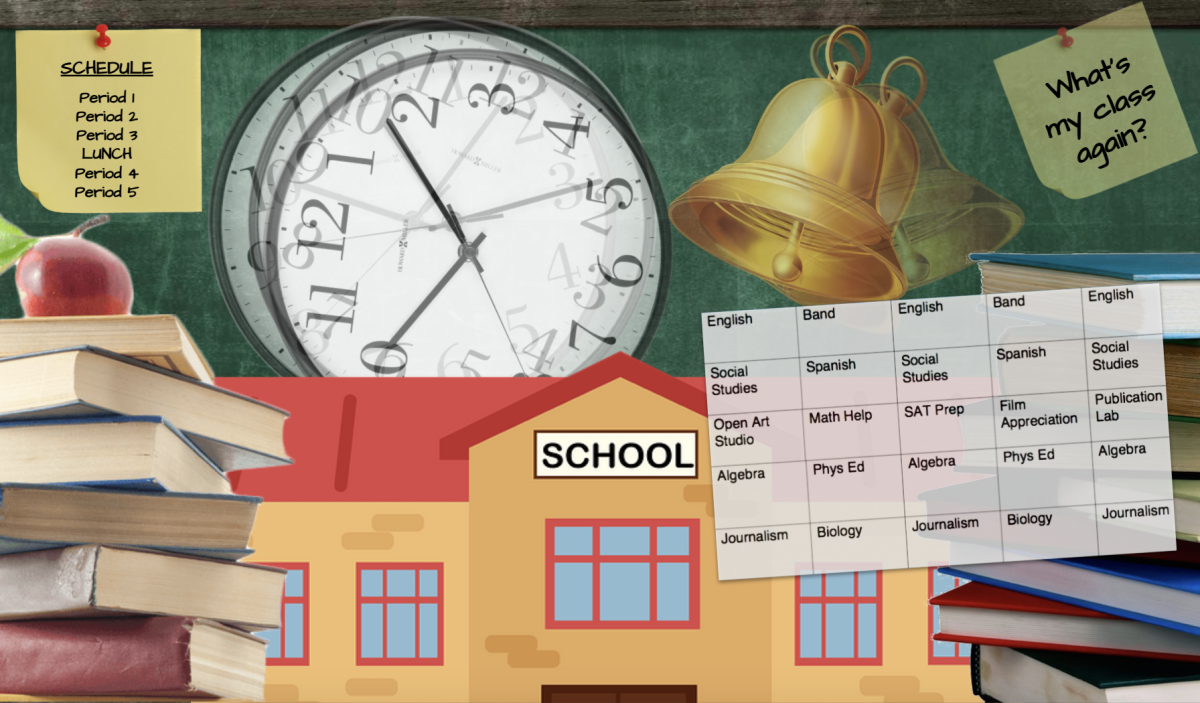In an ever-changing educational environment, the debate over scheduling methods continues to be a topic of discussion among teachers, administrators, students, and parents. One method, block scheduling, has gained traction in recent years. With block scheduling, students have longer class periods–usually ninety minutes–with fewer subjects per day, oftentimes resulting in A and B days. Some central New Jersey schools that follow this practice include Monroe Township High School, Edison Academy Magnet School, and South Brunswick High School. Others follow a traditional twelve-period schedule, including Edison High School, Edison’s sister school JP Stevens High School, and North Brunswick High School.
Advocates of block scheduling argue that longer class periods allow for deeper learning with class materials, allowing students to better understand and retain information. Others claim that it can also accommodate diverse learning styles and provide more opportunities for project-based learning. Additionally, students would have fewer transitions between classes, reducing disruptions throughout the day.
“I think it benefits students in a large way as we can spend more time in classes for that day and focus on each class. Having block scheduling allows students to be able to manage their time better and get all the work done for each class as it would only be for four classes instead of eight. I’m able to focus on the material and can fully understand the curriculum each day,” Samuel Jebaraj ‘25 of Montgomery High School, which practices block scheduling, said.
The aforementioned benefits of block scheduling serve as a compelling reason for Edison Township schools to shift their class schedules.
“Personally, I feel like block scheduling has a wider variety of benefits in comparison to the traditional twelve-period schedule,” said Varnika Sai Sirigineedi ‘25. “As a member of the EHS Student Council and the Girl’s Lacrosse Team, I find it challenging to sometimes balance my homework and extracurricular commitments. Having a block schedule would allow me to focus on each class for longer periods both during class and at home.”
However, critics of the block schedule system claim that longer class periods can be mentally straining on students, leading to fatigue and a lower attention span in class. Having fewer classes per day increases the chances that students may forget material between longer intervals, especially because many tend to procrastinate their assignments. This negatively impacts their comprehension.
“Block scheduling can really have two sides. On one hand, classes that can go on for forty minutes are extended to over an hour. For me at least, it gets hard to pay attention, but I also don’t feel like I’m being rushed in my classes, and I can get a lot more information packed in. Overall, though, I prefer shorter classes because they’re just easier to manage day-to-day,” said Suhani Sengupta ‘25 of the Edison Academy Magnet School.
EHS student Charvi Padmanabhini ‘24 shares a similar perspective.
“Even though block scheduling has its benefits, I prefer the twelve-period schedule EHS has because it is just easier to manage all of my priorities. Even though block scheduling would be fewer periods a day, students would have to double the homework anyway which can be hard to manage sometimes. I also feel like students would have a harder time staying focused as the periods are so long,” said Padmanabhini.
In addition, college classes tend to vary widely in length, ranging from traditional fifty-minute sessions to ones lasting several hours—up to six.
While some accounts indicate that students who experienced block scheduling in high school demonstrate improved time management skills and adaptability to longer class periods in college, others suggest that there is no significant difference in academic performance between students from traditional-schedule vs block-schedule schools.
“It did help me train myself to be able to immediately switch my brain from one train of thought to another, especially as my classes are more spread out in subjects this semester and require different ways of approaching problems,” said EHS Alumni Lavanya Rao ‘23, a current student at the Rutgers University Honors College. “The increase in class size and length didn’t have much of an effect on me. I love the classes I am taking, so it doesn’t feel like my classes are twice as long as they were in high school.”
On the other hand, students who come from a high school that practices block scheduling have differing perspectives; however, this is truly dependent on class lengths and majors.
“Coming from a school with block scheduling, my college classes were very similar to my high school ones in terms of structure and length. There wasn’t much of a difference during that transition to college because I was already used to having 90-minute periods, so that’s why I think block scheduling is beneficial for students,” South Brunswick High School alumni and current student at Rutgers University, Sara Desai ‘22, said.
Furthermore, it is necessary to acknowledge that not all students pursue this traditional college path. For those pursuing vocational training or those who directly obtain a job, exposure to different scheduling methods still has a large impact. Different schedules, such as hybrid models, may better suit the needs of these students by providing practical skills and replicating real-world experiences.
Student perspectives raise the question as to whether Edison Township School District should consider altering its schedules for the next academic school year. Would students benefit from a change, or would it serve as an inhibitor to their education?



















































































